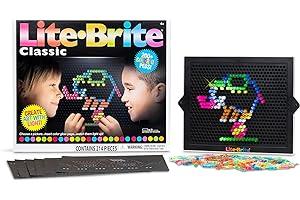Best Selling Electronic Learning Systems
Electronic learning systems (ELS) are computer-based systems that deliver educational content and instruction to students. ELS can be used in a variety of settings, including schools, homes, and businesses. They can be used to teach a wide range of subjects, from basic literacy and numeracy to advanced science and mathematics.
Benefits of ELS
ELS offer a number of benefits over traditional face-to-face instruction, including:
- Convenience: ELS can be accessed from anywhere with an internet connection, making them ideal for students who live in remote areas or who have busy schedules.
- Flexibility: ELS allow students to learn at their own pace and on their own schedule.
- Interactivity: ELS often include interactive features, such as games, simulations, and videos, which can help to keep students engaged and motivated.
- Personalization: ELS can be tailored to the individual needs of each student, allowing them to learn at a pace and in a way that is most effective for them.
Links to Best Selling Electronic Learning Systems
Types of ELS
There are a variety of different types of ELS available, including:
- Course management systems (CMS): CMSs are used to deliver online courses. They typically include features such as online quizzes, discussion boards, and gradebooks.
- Learning management systems (LMS): LMSs are similar to CMSs, but they also include features such as student tracking and reporting.
- Adaptive learning systems (ALS): ALSs are designed to adapt to the individual needs of each student. They typically use artificial intelligence (AI) to track student progress and identify areas where they need additional support.
- Massive open online courses (MOOCs): MOOCs are online courses that are open to anyone with an internet connection. They typically include video lectures, readings, and discussion boards.
Choosing an ELS
When choosing an ELS, it is important to consider the following factors:
- The needs of your students: What are the learning goals of your students? What type of learning environment do they prefer? What level of support do they need?
- The features of the ELS: Does the ELS include the features that you need? Is it easy to use? Is it affordable?
- The reputation of the ELS provider: Do some research to find out what other users have to say about the ELS provider. Are they reliable? Do they provide good customer support?
Conclusion
ELS can be a valuable tool for educators and students. They offer a number of benefits over traditional face-to-face instruction, including convenience, flexibility, interactivity, and personalization. When choosing an ELS, it is important to consider the needs of your students, the features of the ELS, and the reputation of the ELS provider.
